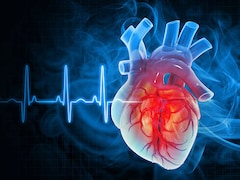What Is Leptospirosis? Here are the key symptoms of leptospirosis.

What Is Leptospirosis?
Leptospirosis is a bacterial infection caused by the Leptospira species, commonly found in water contaminated by the urine of infected animals, especially rodents. It's a disease that thrives in warm, tropical climates and often spikes during monsoon season due to water-logging and poor sanitation. According to the World Health Organisation (WHO), leptospirosis is a zoonotic disease (transmitted from animals to humans) and can lead to severe complications if not diagnosed and treated early. While it can affect anyone, those exposed to floodwaters, sewage, or animal waste are at a higher risk. Timely awareness can prevent the disease from turning fatal.
Symptoms of leptospirosis
Often mistaken for viral flu, leptospirosis presents with symptoms like fever, chills, muscle aches, and headache. The Centres for Disease Control and Prevention (CDC) notes that if left untreated, it can progress to kidney or liver failure, meningitis, or even death. Knowing the causes and symptoms can help in early detection and recovery, especially in high-risk regions during rainy months. Here are the key symptoms of leptospirosis.
1. Sudden onset of fever and chills
Early symptoms often mimic the flu, fever, chills, headache, and muscle aches, particularly in the calves and lower back. The fever may last for several days.
2. Red eyes and skin rashes
Conjunctival redness without discharge and skin rashes are common signs. Some patients may also experience photophobia (sensitivity to light).
3. Jaundice and liver complications
Yellowing of the skin and eyes may occur in more severe cases, a sign that the liver is affected. This condition is known as Weil's disease.
4. Kidney dysfunction
Leptospirosis can lead to acute kidney injury. Symptoms include reduced urine output, swelling, fatigue, and vomiting, requiring immediate medical attention.
5. Vomiting, nausea, and abdominal pain
Gastrointestinal symptoms are common and often lead to misdiagnosis. Persistent nausea or stomach pain should not be ignored if you've been exposed to contaminated water.
6. Respiratory issues
In severe cases, patients may experience chest pain, coughing, and shortness of breath. Internal bleeding into the lungs can also occur, which is life-threatening.
7. Risk factors include contaminated water exposure
People wading through floodwaters, cleaning clogged drains, or working in agricultural fields are most at risk. Even swimming in untreated water bodies can lead to infection.
8. Transmission from pets and livestock
Apart from rodents, infected dogs, cattle, and pigs can also transmit the bacteria. Vets, farmers, and pet owners should stay vigilant and use protective measures.
9. Diagnosed via blood or urine tests
Leptospirosis is usually confirmed through serological tests like the microscopic agglutination test (MAT), PCR, or ELISA, especially during the first few days of infection.
10. Treated with antibiotics
According to the WHO, early treatment with antibiotics like doxycycline or penicillin can shorten the illness and prevent complications. Hospitalisation may be required for severe cases.
11. Prevention through hygiene and vaccination
Preventive measures include avoiding stagnant water, wearing protective gear, and vaccinating pets and livestock in high-risk areas. WHO also encourages rodent control and proper waste management.
Leptospirosis may be underreported, but its consequences can be serious without timely treatment. With growing monsoon-related flooding in urban India, awareness of this disease is crucial. Following proper hygiene, avoiding exposure to potentially contaminated water, and seeking early medical help are the best ways to stay safe. As always, prevention is better and safer than cure.
Disclaimer: This content including advice provides generic information only. It is in no way a substitute for a qualified medical opinion. Always consult a specialist or your own doctor for more information. NDTV does not claim responsibility for this information.
DoctorNDTV is the one stop site for all your health needs providing the most credible health information, health news and tips with expert advice on healthy living, diet plans, informative videos etc. You can get the most relevant and accurate info you need about health problems like diabetes, cancer, pregnancy, HIV and AIDS, weight loss and many other lifestyle diseases. We have a panel of over 350 experts who help us develop content by giving their valuable inputs and bringing to us the latest in the world of healthcare.














